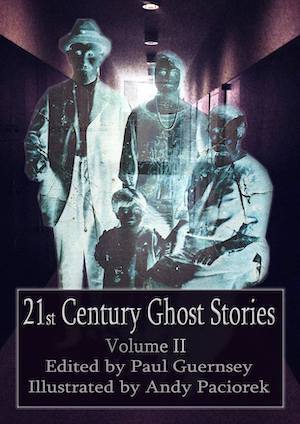FIRST HONORABLE MENTION
The 2016 Screw Turn Flash Fiction Competition
By BARRY CHARMAN
The conditions were challenging, but Suzette didn’t mind. Exhilaration had a price, easily paid. Ever since she’d first glimpsed the field, driving past all those months ago, all she’d been able to think of was painting it. She set up on a small ridge so she could see the field fully as it extended into the distance. A river of golden wheat, glowing like a sea beneath a sun. The wind blew colours her way. The view seemed to change by the moment. Down at the far end of the field an old black mill, hunched like a wounded animal, was the only thing that seemed to stay in place. At least, until she noticed the figure. A man, she thought, some local? He was just standing there, unmoving. She continued to paint, greys now whirling into black—such a sky—but his fixed presence began to distract her. She almost thought of going down to talk to him, when she suddenly realized it must be a scarecrow. Of course. Some farmer must have added it after she’d first scouted the field. It was annoying, but she could overlook it.
Suzette just concentrated on the painting. She wanted to capture the rush of life. The breath against the inert. The resistance, the mutual hatred of all things. Later, when she was packing up for the day, she spared a glance for the figure, but as her eyes scanned the field, she realised it was no longer there. She gripped her easel, more troubled by this than she could explain. Back at the hotel, she sat on her bed and called her sister. They talked about the landscapes she was developing. The therapeutic nature of art.
“It’s been such a terrible year,” Jane said.
But Suzette blocked it out. She visualized the accident, and painted over the parts she didn’t like. She tried to explain this, but Jane wasn’t happy.
“You have to face what happened.” She talked on, but Suzette began to block her out too.
The next day Suzette took her canvas, her easel, her paints, and went back to the spot she’d found. The calm sky was maddening, but she could ignore it. There was no figure. Except, as she set up the painting, she realised she had painted him into the landscape, which she hadn’t remembered doing. His appearance on her canvas was abrupt and improper. It seemed an intrusion in the composition. She raised her brush, intending to paint across him, but it was a watercolor; any attempt to paint over him would end badly. This thought made her pause so long, she almost forgot what she was doing.
She tried to push past it by returning her attention to the sky. In the painting the sky was a howling, churning animal. The strokes were thick, aggressive. Had it really been like that?
Suzette paused again. She shook herself and focused. She went back to the crops, adding more to what she’d painted yesterday. She made them bow and break. She wanted them to suffer, to know the inevitable pressure of existence.
She blinked. Turning away from the canvas, she stared at the field. She felt her heart beating. She remembered how he would put his palm to her chest, oh, the poor little thing. He’d smile, then. Wicked smile. Beautiful smile. Then he would rest against her, his steady heart calling to hers to slow down. That beat and echo of love. That moment. So solid. The weight of it all, so brutally worthless over time.
She realized that no matter what she painted, she could not capture the simple, raw horror of the world. No more than she could make any sense of it. Her eyes were blurry, but in the field she saw the figure of a man, waving. Stepping back, she rubbed her face and glanced at the canvas. There was nothing in the landscape but the howl of life. She saw now that no man could exist in such a climate. The violence in the painting made her unsteady and she turned quickly away. Uncertain, she slowly raised her arm, and waved back. The man brought his pale hands up, pressed together, and rested his head against them.
Sleep, he was saying. Sleep.
But she’d slept at the wheel. She never wanted to sleep again. She must have been tired; the next thing she knew she was kneeling, her legs folded neatly beneath her. The easel loomed beside her, but she didn’t look up at it. She didn’t look at the field either. Wherever he was, he was not. The thought should have maddened her. Should have made her want to paint over the bleak white canvas he’d left behind. Instead she looked down, at her paint-streaked palms. Blacks. Greys. Reds. His eyes had been turquoise. His lips the palest pink. Where were these? She thought that in coming here, attempting another painting after all these years, would be the challenge—but the real challenge was in trying to paint something that was not the landscape of a butchered heart. It was in trying not to find madness in her palette. She smiled. It was the softest feeling on her face, like a light brushmark against her own canvas. Like the fingers that once brushed her so. She found she felt less tired than before. Somehow, it was enough to sit and watch as the sky turned pink. This morning, she would have called it bruised, and she would have thanked it for being honest.
But that was this morning. Before her, below, the crops waved. So she waved back.
Barry Charman lives in North London. He has been published in various magazines, including Ambit, Firewords Quarterly, The Literary Hatchet and Popshot. He has had poems published online and in print, most recently in Leading Edge and The Linnet’s Wings. He has a blog at http://barrycharman.blogspot.co.uk/

